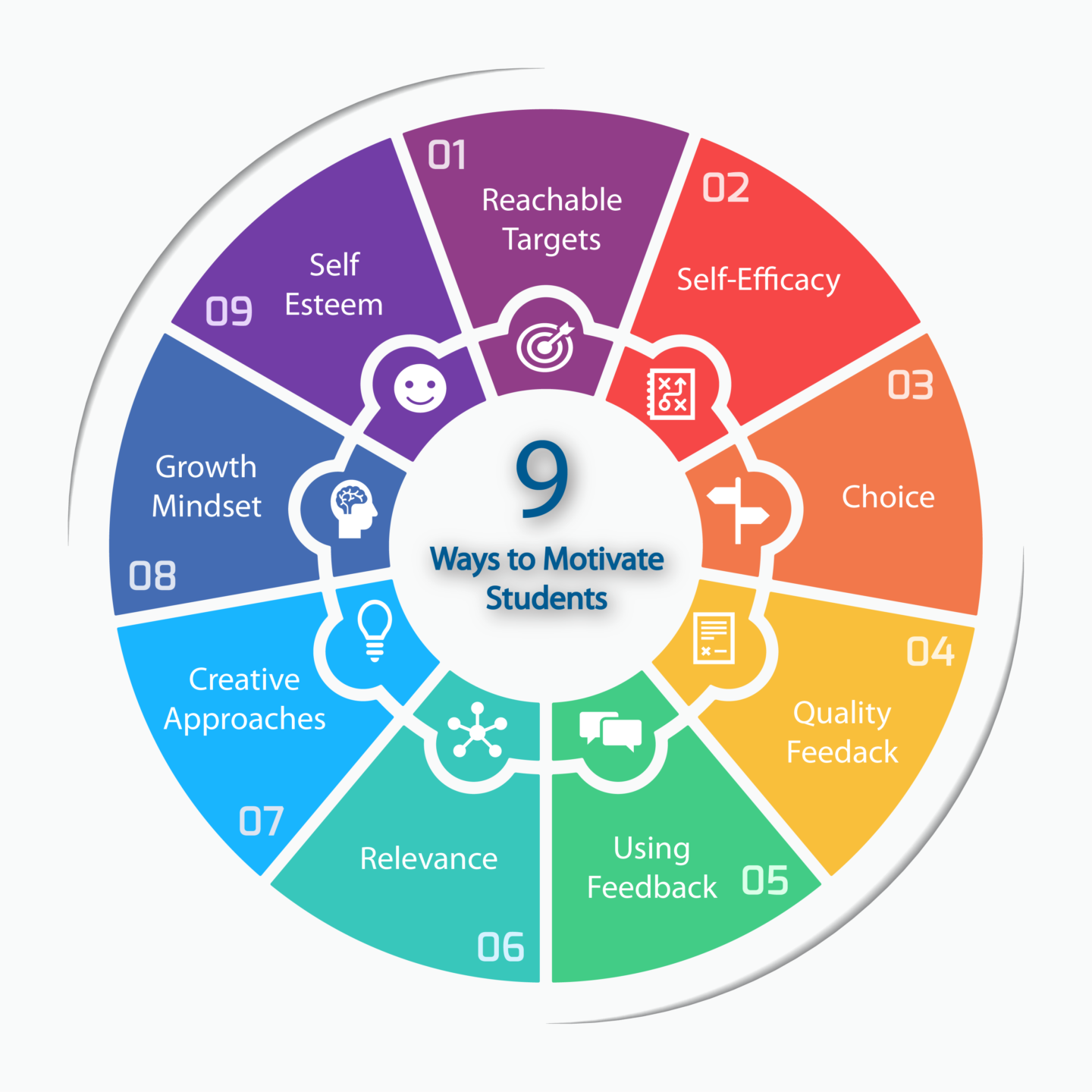Is there a link between motivation to learn and good or bad assessment practice?
There is a link between a student’s motivation to learn and good or bad assessment practice. What students think about and do with assessment results is as important as what adults think about and do with assessment results. There is sufficient research to support this assertion. Good
assessment practice and systems that emphasize assessment for learning engender productive psychological responses from learners to assessment information, responses students act on to increase their learning. When we use assessment effectively to support and advance learning, we increase the possibility that students will become the life-long learners that K-12 educators work to foster.

9 Ways to Motivate Students
Based on cognitive science about what motivates learners and is essential to ensure quality curriculum, assessment, and instruction.
We’ve assembled more resources for this topic below.
9 Ways to Motivate Students
Cognitive science tells us multiple factors can be motivating to students in assessment practice.
Assessing Students’ Affect Related to Assessment for Learning
This article by Stiggins and Popham includes inventories focused on four key variables relevant to AFL classrooms.
How People Learn: Brain, Mind, Experience and School: Expanded Edition (2000)
Book: How People Learn: Brain, Mind, Experience and School: Expanded Edition (2000) The National Academies of Sciences Engineering and Medicine offers a free PDF download of this book. This book is based on cognitive science research. It adds to our understanding of what it means to know. The book examines these finds and their implications for what we teach, how we teach it, and how we assess what our children learn. "
Link Between Student Motivation and Assessment Practices
The video conference and supporting document emphasize the practices necessary to: provide more descriptive feedback during learning, and turn students into assessors and confident learners.
MAC Reads! Book Study Process Guide: Revolutionize Assessment
The webinar articulates the if – then arguments that explain in lay terms the psychology of assessment for learning. The process guide supports group reading and study for the book Revolutionize Assessment.
Mindsetworks Newsletter
Newsletter: Mindsetworks: This website is a commercial education spin-off based on Carol Dweck’s research. The sections about science, practice implications for educators, case studies and blogs have some connection to assessment practice that supports learning.
Paper: Motivation, Engagement, and Student Voice, SATC Series, Eric Toshalis, and Michael J. Nakkula
The Students at the Center series explores the role that student-centered approaches can play to deepen learning and prepare young people to meet demands of the 21st century. This paper synthesizes existing research on key components of student-centered approaches.
